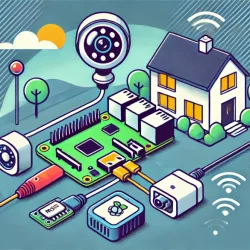What to Do When Someone Steals from Your House
Discovering your home has been broken into is more than just frustrating—it’s deeply personal. Whether it’s a missing laptop, family heirloom, or cash, theft steals more than your valuable items. It takes your sense of safety and control.
This isn’t just a big-city problem either—across places like Portland, Sacramento, and Baltimore, homeowners report similar feelings of helplessness when their cases hit investigative roadblocks or don’t get prioritized by busy departments.
This guide walks you through exactly what to do when someone steals things from your house, including who can help and steps to take to mitigate the risk in the future.
Step 1: What to Do Immediately After a Theft at Home
First, make sure you and anyone in the home are safe. If you suspect the intruder might still be nearby, leave the premises and call 911 immediately.
Once the scene is secure, here’s what to do:
- Call your local police and file a report. This will be critical for insurance claims and any legal follow-up.
- Avoid disturbing the scene before officers arrive. Don’t clean up, touch entry points, or move items around.
- Document what’s missing and take photos of any damage or signs of forced entry.
- Get a copy of the police report number, and ask for follow-up contact info in case you discover additional items missing later.
If your valuables are involved in an ongoing police investigation, getting them back could be delayed, as they might be required as evidence.
Step 2: How to Report the Theft and Work with Your Insurance
Once the police report is underway, you’ll want to contact your insurance company as soon as possible. Depending on the insurance policy you have, you might be eligible for compensation for stolen items or damage to your property.
Here’s how to speed up the process:
- List all stolen items, including serial numbers, estimated values, and any proof of ownership (like receipts or photos).
- Include any police report documentation, especially if a suspect is identified or the theft fits a known pattern.
- Don’t forget secondary losses—damaged locks, broken windows, stolen keys, or other everyday items may also be covered.
Working with an insurance company can take time, but depending on how your personal property is insured, may be the simplest way to recover lost value.
Step 3: Why a Private Investigator Can Help When Someone Steals from Your House
According to data from the FBI Crime Data Explorer, millions of property crimes are reported each year in the U.S., many of which remain unsolved. If you’ve filed a police report but the investigation seems to stall—or you want more aggressive follow-up—a licensed private investigator can help.
In many cities—especially larger metro areas like Baltimore, Portland, and San Antonio—property crimes often receive limited follow-up due to stretched police resources. That’s where professional investigators can step in to support and continue the search.
What a private investigator can do:
- Surveillance of known suspects or high-risk areas.
- Digital forensics to trace stolen electronics or monitor online resale platforms.
- Work in coordination with law enforcement, especially if you've provided solid leads they can't pursue quickly.
- Recover stolen property or gather admissible evidence to assist in prosecution or civil claims.
Across cities like Portland, Sacramento, Baltimore, and Charlotte, burglary rates remain well above national averages. In these areas, stretched police departments often have limited time or resources to dedicate to non-violent property crimes. That’s where specialized investigative support steps in.
🔗 In cities like Charlotte, NC, where the burglary rate is 3.169 per 1,000 residents, our private investigators are frequently called in to help homeowners get answers. Learn more about our Charlotte-based investigative team and how we support clients after home thefts.
Step 4: What to Do If You Find Your Stolen Property for Sale or in Someone’s Possession
Sometimes, people spot their stolen personal items on resale sites like Facebook Marketplace, Craigslist, or eBay—or even notice them in a neighbor’s garage or local pawn shop. While it’s frustrating and tempting to act immediately, it’s important to follow the proper steps to protect your rights and avoid legal complications.
Here’s how to handle this situation the right way:
Document What You’ve Found
- Take clear screenshots or photos of the item and the seller's listing.
- Note any usernames, dates, locations, and descriptions that match your missing item.
- If it’s a large amount of money or a unique item, include any evidence you have proving ownership (e.g., receipts, serial numbers, photos, or police report details).
Contact Law Enforcement
- Report your findings to the officer or department handling your case.
- Provide all the evidence you've gathered—they may be able to contact the seller of the property and recover it legally.
- In many states, police are the only authority that can demand the return of stolen personal property in someone else’s possession.
Avoid Direct Confrontation
- Even if the item is clearly yours, confronting the person who has it can escalate the situation and may backfire legally.
- Let the police or your legal representative handle any interaction, especially if property rights are disputed.
File a Claim or Statement of Ownership if Required
- Some jurisdictions allow you to file a sworn statement or affidavit proving that the personal property in question belongs to you.
- This may be required if the item is in a pawn shop or being held by a third party pending investigation.
Step 5: How to Protect Your Home from Future Break-Ins
After a theft, many homeowners realize their existing security setup wasn’t enough. Here are some security solutions you might want to explore to make your home more resistant to future break-ins:
- Install smart cameras and alarms with remote monitoring.
- Reinforce doors, windows, and locks, especially ground-floor entry points.
- Add outdoor lighting and motion sensors to deter intruders.
- Trim back landscaping that obscures views of windows or doors.
- Schedule a professional home security audit, especially if you're in an area with a higher crime rating.
Sites like 101HomeSecurity offer in-depth home security guides on security options, placement, and maintenance—all essential tools in protecting your property long-term.
Final Thoughts: Take Control After a Home Burglary
Having your house broken into is never easy—but you’re far from powerless. By acting quickly, documenting everything, and leaning on professionals (from law enforcement to private investigators), you can take back control of your space, your case, and your peace of mind.
Whether you live in a city with a high crime rate or a quiet suburb, theft is always personal. But so is your response—and the right steps can make all the difference.




